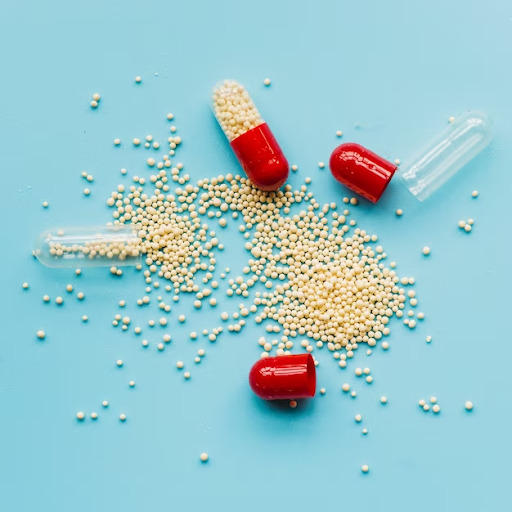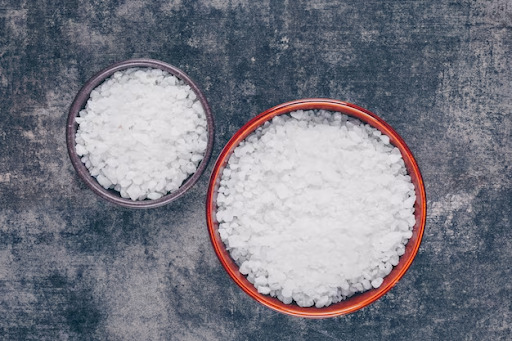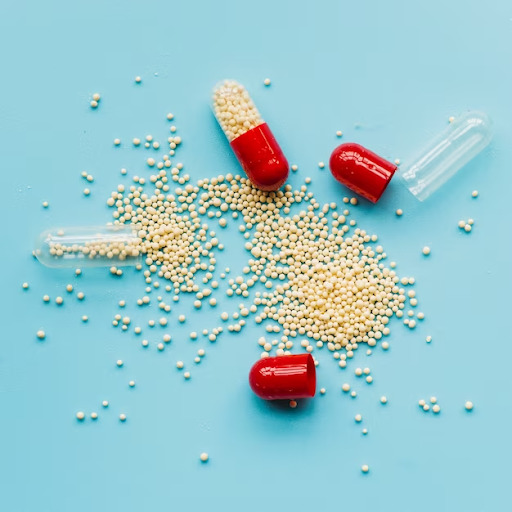Don't wanna be here? Send us removal request.
Text
Global Dabigatran Manufacturer
Dabigatran Manufacturer, Bhasya International. It is an anticoagulant that works by blocking the substances that cause blood coagulation and prevents it
0 notes
Text
Global Dabigatran Manufacturer
Understanding Dabigatran Manufacturing
In the ever-evolving landscape of pharmaceuticals, anticoagulants have emerged as crucial tools in preventing life-threatening conditions such as strokes and venous thromboembolism. Among these, dabigatran stands out as a widely used oral direct thrombin inhibitor. Though commonly prescribed, the manufacturing of dabigatran is a complex, tightly regulated process that blends high-end chemistry with rigorous safety standards. This blog explores the process of dabigatran manufacturing, highlighting key aspects like synthesis, formulation, quality control, and regulatory compliance.

What is Dabigatran?
Dabigatran is an oral anticoagulant that functions by inhibiting thrombin, a key enzyme in the blood-clotting process. It is typically used to prevent stroke and systemic embolism in patients with non-valvular atrial fibrillation, and also for the treatment and prevention of deep vein thrombosis (DVT) and pulmonary embolism (PE).
It is usually administered in its prodrug form, dabigatran etexilate, which becomes active after metabolism in the liver.
Manufacturing Dabigatran: From Lab to Tablet
Manufacturing dabigatran involves a sophisticated process that includes chemical synthesis, formulation, and packaging, all under stringent quality assurance protocols.
1. Active Pharmaceutical Ingredient (API) Synthesis
The core of any pharmaceutical product is the Active Pharmaceutical Ingredient (API). Dabigatran’s API, dabigatran etexilate mesylate, is synthesized through a series of multi-step organic reactions. These reactions involve precise control of chemical conditions such as pH, temperature, and solvent choice.
The synthesis pathway is complex and typically starts with hydroxybenzamidine derivatives, which undergo reactions including esterification, amidation, and salt formation to yield the final mesylate salt. Each intermediate stage must be meticulously purified and analyzed to ensure the desired stereochemistry and chemical stability are maintained.
Key considerations during API synthesis include:
Purity: Impurities must be controlled to meet international pharmacopeia standards.
Yield: Efficient chemical processes are essential to keep production economically viable.
Environmental and Worker Safety: Proper handling of solvents, reagents, and byproducts is critical to minimize health and environmental risks.
2. Formulation of the Final Dosage Form
Once the API is synthesized and verified, the next step is the development of the oral solid dosage form, typically a capsule. Dabigatran etexilate has low bioavailability and is sensitive to moisture and acidity, which makes its formulation particularly challenging.
Key elements in the formulation phase include:
Pellet Technology: Dabigatran is often formulated into small pellets coated with functional layers that protect the drug and control its release.
Enteric Coating: This prevents degradation in the stomach and ensures the drug is absorbed in the intestine.
Excipients: These inactive ingredients aid in stability, bioavailability, and capsule integrity.
The formulation is carried out in Good Manufacturing Practice (GMP) certified facilities using high-precision equipment like fluid bed coaters and granulators to ensure consistency.
3. Quality Assurance and Testing
Every batch of dabigatran undergoes rigorous quality testing to ensure compliance with regulatory standards such as those set by the U.S. FDA, EMA, and other global authorities.
Testing includes:
Identity and Purity Tests: Confirm the chemical structure and absence of harmful impurities.
Dissolution Testing: Ensures the drug releases properly in the gastrointestinal tract.
Stability Studies: Long-term and accelerated testing to ensure the product remains effective over time.
Microbiological Testing: Confirms the absence of microbial contamination.
Each step in the manufacturing process is documented in detail, and full traceability is maintained from raw materials to the final packaged product.
4. Packaging and Serialization
Due to dabigatran’s sensitivity to moisture, its packaging is done in blister packs with desiccant features to ensure shelf-life stability. Additionally, in compliance with anti-counterfeit regulations, manufacturers must implement serialization—unique barcodes or digital identifiers on each unit of sale.
Packaging processes are automated and validated to ensure consistency. Labels must include all regulatory information, usage guidelines, and safety warnings.
Challenges in Dabigatran Manufacturing
Manufacturing dabigatran is far from straightforward. The primary challenges include:
Solubility and Bioavailability: Dabigatran etexilate is poorly soluble in water, making formulation a technological hurdle.
Cost of Production: Multi-step synthesis and specialized formulation techniques increase production costs.
Regulatory Scrutiny: As a high-risk medication, it falls under strict post-marketing surveillance and pharmacovigilance.
Patent and Market Competition: While originator patents have expired in many countries, producing a bioequivalent generic still requires significant investment and regulatory approval.
Global Landscape and Future Prospects
The manufacture of dabigatran has expanded globally with the rise of generic drug manufacturers. The expiration of key patents has opened up opportunities for more affordable versions, increasing global accessibility. However, ensuring consistent quality across different manufacturers remains a top priority for health regulators.
In the future, innovation may focus on improving formulations (e.g., extended-release versions), enhancing patient compliance, or integrating AI and automation into production lines for better quality control.
Conclusion
Dabigatran represents a critical advancement in anticoagulant therapy, but its availability and efficacy are rooted in a highly intricate manufacturing process. From chemical synthesis to final packaging, each stage is governed by science, precision, and stringent quality controls. As the pharmaceutical industry evolves, so too does the technology and oversight behind medications like dabigatran—ensuring patients receive safe, effective treatment every time.
URL: For more information, visit Bhasya International: Dabigatran manufacturer
0 notes
Text
Active Pharmaceutical Ingredients Manufacturers in India
Active Pharmaceutical Ingredients Manufacturers in India, Bhasya International,, has more than 15 years of experience in manufacturing APIs, DC Granules
0 notes
Text
Active Pharmaceutical Ingredients Manufacturers in India
The Backbone of Global Pharma: Active Pharmaceutical Ingredient (API) Manufacturers in India
India, often dubbed the "Pharmacy of the World," holds a prominent position in the global pharmaceutical landscape. A critical part of this identity stems from its robust and expansive ecosystem of Active Pharmaceutical Ingredient (API) manufacturing. APIs are the core components of any drug formulation—responsible for producing the intended therapeutic effect. Over the decades, India has emerged as a leading supplier of these crucial drug substances, catering to domestic demands and supplying to markets across the globe.

What Are Active Pharmaceutical Ingredients?
An Active Pharmaceutical Ingredient (API) is the biologically active component in a pharmaceutical drug. While most medications contain multiple ingredients—including stabilizers, preservatives, and fillers—the API is the element that produces the desired pharmacological activity. For example, in a pain relief tablet, the compound that actually alleviates the pain is the API, while other substances help in delivering it effectively within the body.
APIs can be synthesized through chemical processes or derived from natural sources, and more recently, biotechnological methods have become increasingly prevalent. Their production is subject to stringent regulatory oversight, given the direct impact on drug safety and efficacy.
The Rise of India’s API Manufacturing Sector
India’s rise as an API powerhouse didn’t happen overnight. It is the result of decades of policy decisions, infrastructure investments, skilled workforce development, and an entrepreneurial mindset. In the 1970s and 1980s, India implemented a series of patent laws that favored the local production of drugs, especially APIs, without infringing on international patents. This provided a unique environment where domestic companies could innovate and scale.
Additionally, India’s vast base of chemical manufacturing experience and relatively lower production costs compared to Western countries gave it a competitive edge. As Western pharmaceutical companies increasingly outsourced their manufacturing to reduce costs, India became a natural partner.
Strategic Advantages of Indian API Manufacturers
Several factors contribute to India’s continued leadership in API manufacturing:
Cost Efficiency: Lower labor and operational costs allow Indian manufacturers to offer competitive pricing without compromising on quality.
Skilled Workforce: A strong base of chemists, pharmacists, and engineers drives innovation and quality in manufacturing processes.
Regulatory Compliance: Many Indian facilities are approved by major regulatory agencies such as the U.S. Food and Drug Administration (FDA), the European Medicines Agency (EMA), and the World Health Organization (WHO). This global compliance enables Indian APIs to be used in drug formulations worldwide.
Vertical Integration: Many manufacturers in India are vertically integrated, producing both APIs and finished dosage formulations. This integration streamlines production and quality control, ensuring a more reliable supply chain.
Government Support: Recognizing the strategic importance of the API sector, the Indian government has launched various initiatives, such as Production Linked Incentive (PLI) schemes and bulk drug parks, to encourage local API manufacturing and reduce import dependency.
Challenges Facing the Indian API Sector
Despite its many strengths, the Indian API manufacturing sector is not without challenges:
Dependency on Imports for Key Starting Materials (KSMs): A significant proportion of raw materials and intermediates used in API production are imported, particularly from China. This dependency poses a risk to supply chain stability.
Environmental Compliance: API production can involve hazardous chemicals and generate waste. Adhering to increasingly stringent environmental regulations requires continuous investment in clean technologies and waste management systems.
Price Pressures: Global competition and buyer expectations for low costs can erode profit margins, especially for commoditized APIs.
Innovation Gaps: While India excels in manufacturing generics and well-established APIs, innovation in new drug molecules and high-potency APIs (HPAPIs) is still developing.
The Road Ahead
India’s API manufacturing landscape is evolving. With the COVID-19 pandemic highlighting the risks of global supply chain disruptions, there is renewed focus on domestic self-sufficiency and resilience. Initiatives aimed at backward integration—producing more raw materials and intermediates domestically—are gaining traction.
Moreover, advances in green chemistry, continuous manufacturing, and digital process control are being explored to make API production more sustainable and efficient. The growing focus on biosimilars and biopharmaceuticals also opens new avenues for API development beyond traditional small-molecule drugs.
Conclusion
India’s API manufacturers play a critical role not only in the national pharmaceutical ecosystem but also in ensuring global access to affordable, quality medicines. As healthcare needs continue to evolve, and demand for generic drugs and complex therapeutics rises, India is well-positioned to expand its footprint.
To sustain and enhance its leadership, the industry must continue to innovate, invest in sustainability, and reduce its dependency on external sources for key inputs. With coordinated efforts from industry stakeholders and government, India’s API sector will remain a cornerstone of the global pharmaceutical supply chain for years to come.
URL: For more information, visit Bhasya International: Active Pharmaceutical Ingredients Manufacturers in India
0 notes
Text
cefixime api manufacturer in india
Cefixime USP Manufacturers in India,Bhasyainternational.We deliver cefixime in different categories of tablets, capsules, oral suspension.Visit us now
0 notes
Text
cefixime api manufacturer in india
Cefixime API Manufacturing in India: A Glimpse into a Vital Pharma Segment
India, often dubbed the "Pharmacy of the World," plays a critical role in the global pharmaceutical supply chain. One of the key segments of this vast industry is the manufacturing of Active Pharmaceutical Ingredients (APIs), which are the core components responsible for the therapeutic effects in medicines. Among the many APIs produced in India, Cefixime holds a significant place due to its wide application as a third-generation cephalosporin antibiotic.

Cefixime is widely used to treat various bacterial infections, including respiratory tract infections, urinary tract infections, otitis media, and gonorrhea. As bacterial resistance continues to be a global concern, the demand for effective antibiotics like Cefixime remains strong. This sustained demand, coupled with India’s robust pharmaceutical ecosystem, has made the country a major hub for Cefixime API manufacturing.
Understanding Cefixime API
Cefixime belongs to the cephalosporin class of antibiotics and is known for its broad-spectrum antibacterial activity. It works by inhibiting bacterial cell wall synthesis, effectively killing susceptible bacteria. In API form, it is manufactured as a white to yellowish crystalline powder, which is then formulated into various dosage forms such as tablets, capsules, and suspensions.
The synthesis of Cefixime API is a complex, multi-step chemical process involving several intermediates. It requires high-end manufacturing facilities that comply with stringent quality standards, including Good Manufacturing Practices (GMP), and often, international certifications such as the US FDA, WHO-GMP, and EUGMP for export purposes.
The Rise of API Manufacturing in India
India’s prominence in the API manufacturing sector is not a recent development. Over the last few decades, the country has steadily built a strong base of chemical synthesis capabilities, technical know-how, and regulatory expertise. This has enabled it to become one of the top global suppliers of both generic finished formulations and APIs.
In the context of Cefixime, Indian manufacturers have mastered the chemistry and developed cost-effective processes to produce high-purity API on a commercial scale. The ability to scale production while maintaining quality has made Indian manufacturers preferred suppliers not just for domestic pharmaceutical companies but also for clients in Latin America, Africa, Southeast Asia, and the Middle East.
Infrastructure and Capabilities
API manufacturing is a capital-intensive process that requires state-of-the-art infrastructure. Facilities engaged in the production of Cefixime API typically feature:
Advanced reaction vessels and cleanroom environments
In-house quality control and quality assurance laboratories
Effluent treatment plants to ensure environmental compliance
R&D units for process optimization and cost reduction
The scale of operations can range from a few hundred kilograms to several metric tons annually, depending on the demand and production capacity. Continuous process improvements and investments in automation have helped Indian players boost efficiency and minimize batch-to-batch variation.
Regulatory Landscape
The regulatory framework in India ensures that APIs like Cefixime are manufactured in compliance with global standards. The Central Drugs Standard Control Organization (CDSCO) and State Drug Authorities monitor the licensing and inspection processes. For exports, companies often undergo audits by foreign regulatory bodies to receive certifications that validate their adherence to international norms.
Indian API manufacturers must also file Drug Master Files (DMFs) or Certificates of Suitability (CEPs) for markets like the U.S. and Europe. These documents are crucial for pharmaceutical companies that formulate Cefixime-based medicines, as they rely on the API supplier's compliance to streamline their own regulatory approvals.
Export Potential and Global Reach
India's Cefixime API is exported to various parts of the world. The country has a well-established logistics and trade network that supports the efficient movement of APIs to international markets. Competitive pricing, adherence to delivery schedules, and consistent quality make Indian suppliers attractive partners for global pharmaceutical firms.
In particular, many developing countries depend heavily on Indian APIs due to cost constraints and the unavailability of local production facilities. This has positioned India as a strategic partner in improving access to essential medicines worldwide.
Challenges in the Cefixime API Segment
Despite its success, the Cefixime API manufacturing sector faces several challenges:
Raw Material Dependence: Many key starting materials (KSMs) and intermediates are imported, primarily from China. This dependency can lead to price volatility and supply disruptions.
Environmental Regulations: API manufacturing generates chemical waste, necessitating robust waste management systems. Stricter environmental norms increase the cost of compliance.
Antimicrobial Resistance (AMR): While Cefixime remains effective, rising concerns about antibiotic resistance may lead to tighter regulations on antibiotic use, potentially impacting long-term demand.
Future Outlook
The future of Cefixime API manufacturing in India looks promising, driven by ongoing investments in R&D, growing export opportunities, and government support through schemes like the Production Linked Incentive (PLI) program. Indian manufacturers are also exploring greener synthesis routes and continuous processing technologies to enhance sustainability.
Moreover, with the global focus shifting towards reducing dependence on any single country for APIs, India has a strategic opportunity to expand its footprint. The push for self-reliance and the development of domestic KSM and intermediate production facilities will further strengthen India's API value chain.
Conclusion
Cefixime API manufacturing in India is a vibrant and strategically important segment of the country’s pharmaceutical industry. With a combination of technical expertise, regulatory compliance, and global outreach, India continues to play a key role in ensuring the availability of high-quality antibiotics around the world. As the healthcare landscape evolves, the country's capacity to adapt and innovate will determine how strongly it can lead in this critical domain.
URL: For more information, visit Bhasya International: cefixime api manufacturer in india
0 notes
Text
Duloxetine Hydrochloride API Manufacturers in India
Duloxetine Hydrochloride API Manufacturers in India, Bashya International. We are known for manufacturing, supplying, & exporting top-quality products
0 notes
Text
Duloxetine Hydrochloride API Manufacturers in India
The Indian pharmaceutical industry has long established itself as a global hub for Active Pharmaceutical Ingredients (APIs), contributing significantly to the healthcare sector worldwide. Among the many APIs manufactured in India, Duloxetine Hydrochloride holds a prominent place due to its widespread use in treating depression, anxiety, fibromyalgia, and chronic musculoskeletal pain. As the demand for mental health and pain management medications continues to rise globally, India’s position as a key manufacturer of this compound becomes increasingly relevant.

Understanding Duloxetine Hydrochloride
Duloxetine Hydrochloride is a serotonin-norepinephrine reuptake inhibitor (SNRI) used primarily in the treatment of major depressive disorder (MDD), generalized anxiety disorder (GAD), and certain chronic pain conditions. The API works by balancing neurotransmitters in the brain, helping improve mood and reduce pain perception.
Given the increasing prevalence of these conditions, the demand for Duloxetine-based formulations has grown steadily. This, in turn, has driven demand for its API, prompting manufacturers—especially in India—to scale up production, improve quality control systems, and meet stringent regulatory requirements.
Why India Is a Key Supplier of Duloxetine Hydrochloride API
India has become a preferred destination for sourcing Duloxetine Hydrochloride API due to several compelling reasons:
1. Cost-Effective Production
Indian manufacturers have a significant cost advantage due to lower labor costs, infrastructure efficiencies, and economies of scale. This allows them to produce high-quality APIs at competitive prices without compromising on quality, making Indian products attractive to global buyers.
2. Strong Manufacturing Infrastructure
India’s pharmaceutical industry has developed world-class manufacturing facilities that comply with international regulatory standards, including those of the US FDA, EMA (Europe), and WHO-GMP. This regulatory compliance is essential for exporting APIs like Duloxetine Hydrochloride to regulated markets.
3. Technical Expertise and Innovation
Over the years, Indian manufacturers have acquired advanced technical know-how and expertise in the synthesis of complex APIs. Process innovation and backward integration—such as manufacturing key intermediates in-house—have helped reduce costs and improve supply chain resilience for compounds like Duloxetine Hydrochloride.
4. Regulatory and Intellectual Property Compliance
Manufacturers in India have adapted to global regulatory requirements and intellectual property laws. Many maintain robust documentation and data integrity systems, crucial for regulatory filings such as Drug Master Files (DMFs) in the US and Europe. This is particularly important for buyers seeking reliable API suppliers.
Market Dynamics Driving Duloxetine Hydrochloride API Demand
The rising incidence of mental health disorders and chronic pain conditions is a global health concern. As awareness grows and more individuals seek treatment, the demand for medications containing Duloxetine is expected to climb. Additionally, the generic wave across the pharmaceutical world has opened new markets, particularly in emerging economies where cost-effective generics are in high demand.
In this context, Indian manufacturers are strategically positioned to meet the growing demand, both for domestic consumption and for export. Many have diversified their API portfolios to include SNRIs like Duloxetine Hydrochloride to stay aligned with global therapeutic trends.
Challenges Faced by Indian API Manufacturers
Despite the advantages, manufacturing Duloxetine Hydrochloride is not without its challenges:
Regulatory Scrutiny: Manufacturers must continuously maintain high-quality standards to comply with international regulatory agencies.
Environmental and Sustainability Concerns: API production involves complex chemical processes that can have environmental impacts. Increasing regulatory pressure for cleaner production has pushed manufacturers to invest in green chemistry and sustainable practices.
Supply Chain Disruptions: Global supply chain issues, especially for raw materials and intermediates, can affect production timelines. Indian manufacturers have responded by enhancing vertical integration and reducing dependency on external suppliers.
The Future of Duloxetine Hydrochloride Manufacturing in India
The outlook for Duloxetine Hydrochloride API manufacturing in India is optimistic. Several factors contribute to this:
Rising Global Demand: With mental health gaining more attention post-pandemic, the demand for antidepressants and SNRIs like Duloxetine is expected to remain strong.
Expanding Generic Markets: As patents for branded formulations expire, opportunities for generic manufacturers increase. Indian companies, known for their generic expertise, are likely to capitalize on this.
Government Support: The Indian government has launched initiatives such as the Production Linked Incentive (PLI) scheme to encourage domestic API production and reduce dependence on imports, particularly from China.
Conclusion
Duloxetine Hydrochloride is a critical API in the realm of mental health and pain management medications. With India’s strong manufacturing capabilities, cost-efficiency, regulatory compliance, and technical expertise, it has emerged as a key player in the global supply of this important compound.
As global pharmaceutical markets continue to grow and diversify, Indian API manufacturers are expected to play a vital role in ensuring access to affordable, high-quality Duloxetine Hydrochloride. The continued evolution of manufacturing practices, coupled with policy support and market demand, will likely strengthen India's leadership in this segment further.URL: For more information, visit Bhasya International: Duloxetine Hydrochloride API Manufacturers in India
0 notes
Text
Benzyl Cyanide Exporters in India
Benzyl Cyanide Exporters in India: Trends, Challenges, and Global Reach
India has steadily emerged as a significant player in the global chemical industry, particularly in the niche of specialty and intermediate chemicals. One such chemical gaining increasing importance in international markets is Benzyl Cyanide (BzCN)—a key intermediate used in pharmaceuticals, agrochemicals, dyes, and perfumes. As global demand for fine chemicals grows, Indian exporters of Benzyl Cyanide are carving out a strong presence.

What is Benzyl Cyanide?
Benzyl Cyanide (C₆H₅CH₂CN) is an organic compound made from benzyl chloride and sodium cyanide. It is widely used as an intermediate in synthesizing several compounds:
Pharmaceutical intermediates such as phenylacetic acid derivatives.
Agrochemicals including herbicides and insecticides.
Fragrances and flavoring agents, where it acts as a raw material.
Dyes and pigments used in textiles and printing.
Its versatility makes it a valuable compound in chemical synthesis, driving demand in both developed and emerging markets.
Why India?
India has become a preferred source for Benzyl Cyanide due to a combination of factors:
1. Robust Chemical Manufacturing Infrastructure
India’s chemical industry ranks among the top in the world in terms of production volume. With a mature ecosystem for fine and specialty chemical manufacturing, the country provides the technological capabilities and scalability needed to produce Benzyl Cyanide efficiently.
2. Competitive Pricing
Due to lower manufacturing and labor costs, Indian exporters are able to offer Benzyl Cyanide at competitive rates, making it attractive to global buyers, especially in price-sensitive markets.
3. Compliance and Quality
Many Indian chemical manufacturers have aligned with international quality standards such as ISO certifications, GMP (Good Manufacturing Practices), and REACH compliance, allowing them to export to regulated markets like the EU and North America.
4. Export-Focused Growth
Several chemical manufacturers in India have strategically focused on export markets. This has led to the development of dedicated export-grade production lines and logistics setups that support efficient international trade.
Export Trends and Market Demand
India exports Benzyl Cyanide primarily to:
Europe
United States
Southeast Asia
Latin America
The pharmaceutical and agrochemical sectors in these regions are the primary consumers. The global shift toward outsourcing chemical synthesis—especially of intermediates—to countries like India has boosted demand for such compounds.
Challenges Faced by Exporters
Despite the growing market, Indian Benzyl Cyanide exporters face a few key challenges:
Environmental Regulations: Benzyl Cyanide production involves toxic raw materials like cyanide, making environmental compliance critical and complex.
Logistics and Handling: Being a hazardous material, Benzyl Cyanide requires specialized storage and transport, both domestically and for international shipping.
Market Volatility: Raw material prices and currency fluctuations can affect pricing and profitability for exporters.
Future Outlook
The outlook for Benzyl Cyanide exports from India remains promising. Increasing pharmaceutical R&D, agrochemical innovation, and a rising global demand for specialty chemicals are expected to drive export growth. With continued investments in R&D, compliance, and infrastructure, Indian exporters are well-positioned to become global leaders in Benzyl Cyanide supply.
Conclusion :
India’s chemical industry has matured into a dynamic export hub, and Benzyl Cyanide is a prime example of this growth. With a strong manufacturing base, regulatory alignment, and cost advantages, Indian exporters are gaining trust across international markets. As global industries evolve, India is poised to play an even greater role in supplying key intermediates like Benzyl Cyanide to the world.URL: For more information, visit Bhasya International: Benzyl Cyanide Exporters in India
0 notes
Text
Benzyl Cyanide Exporters in India
Benzyl Cyanide Exporters in India,Bhasyainternational. We offer Quality products for your chemical needs for top-quality pellets API.Visit the website
0 notes
Text
Pellets and DC Granules Manufacturers in India
Pellets and DC Granules Manufacturers in India: Fueling Growth in Pharma and Nutraceuticals
India has long been a powerhouse in the pharmaceutical and nutraceutical sectors. Behind the finished tablets and capsules found in medicine cabinets around the world, there's a complex supply chain—and one crucial part of it is often overlooked: the manufacturing of pellets and directly compressible (DC) granules.

What Are Pellets and DC Granules?
Pellets are small, free-flowing, spherical or semi-spherical particles typically in the size range of 0.5–1.5 mm. They're widely used in the formulation of modified-release dosage forms like sustained-release (SR), extended-release (ER), or enteric-coated (EC) capsules and tablets. Pellets offer advantages like uniform drug release, reduced dosing frequency, and improved patient compliance.
DC granules, on the other hand, are granules that are ready to be compressed into tablets without the need for additional processing. These are engineered for direct compression, which simplifies production, reduces time and costs, and ensures uniformity in tablet weight and drug content.
Why India?
India's manufacturing landscape has evolved rapidly over the past few decades, with increasing focus on innovation, scalability, and compliance with global standards like US FDA, WHO-GMP, and EU-GMP. Several factors contribute to India's prominence in the pellet and granule manufacturing space:
Cost-effective production with high quality.
A large pool of technically skilled professionals and pharmaceutical scientists.
Strong regulatory expertise for export-oriented formulations.
An ecosystem of R&D facilities and contract manufacturing units catering to global clients.
Applications Across Industries
Both pellets and DC granules are foundational in a variety of dosage forms:
Pharmaceuticals: For controlled drug delivery, improved bioavailability, taste masking, and combination therapies.
Nutraceuticals: For delivering active ingredients like vitamins, minerals, and herbal extracts in a more stable, bioavailable form.
Veterinary Medicines: Tailored release profiles to match animal physiology and behavior.
Ayurveda and Herbals: Encapsulated or compressed for modern delivery systems.
Key Manufacturing Capabilities
Indian manufacturers of pellets and DC granules often offer:
Customized release profiles (immediate, sustained, delayed, or targeted release).
Taste-masked pellets for pediatric or geriatric use.
Multi-particulate systems for fixed-dose combinations.
Fluid bed coating and extrusion-spheronization technologies.
Bulk production under strict Good Manufacturing Practices (GMP).
Analytical support and documentation for regulatory submissions.
Future Trends
With increasing interest in personalized medicine, fixed-dose combinations, and alternative delivery systems, the demand for advanced oral solid dosage technologies like pellets and DC granules is poised to grow. The Indian pharmaceutical manufacturing sector is well-positioned to meet this demand through:
Expansion of contract manufacturing and development services (CDMOs).
Greater automation and digitalization in production lines.
Enhanced focus on sustainability and green chemistry practices.
Conclusion:
Pellets and DC granules may be small in size, but they represent a big leap in pharmaceutical technology and patient care. India's strategic advantages—scientific expertise, compliance focus, and cost-effective solutions—make it a global hub for manufacturing these advanced intermediates.
As the world moves toward more personalized, efficient, and patient-centric therapies, the importance of high-quality pellet and granule manufacturing will only continue to grow. And India, with its strong foundation and forward-looking approach, is ready to lead the way.
URL: For more information, visit Bhasya International: Pellets and DC Granules Manufacturers in India
0 notes
Text
Pellets and DC Granules Manufacturers in India
Pellets and DC Granules Manufacturers in India, Bhasya International. We are known for our unfailing determination to manufacture high-quality products.
0 notes




